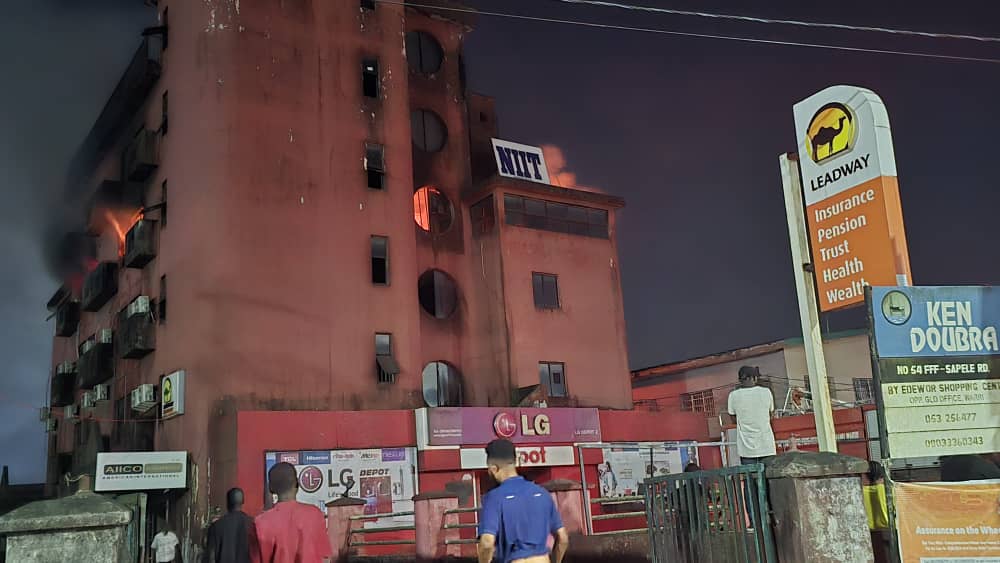
Two devastating fires occurred in Delta and Nasarawa States, causing significant property damage and raising concerns about fire safety and emergency response capabilities in Nigeria.
Fire at Former JFM Building, Delta State
A late-night blaze engulfed the former JFM building in Effurun, Uvwie Local Government Area, Delta State. The building, which houses Current FM, was severely damaged by the flames. As of the time of reporting, the cause of the fire remains unknown.
Efforts to extinguish the fire were hampered by a water shortage faced by personnel from the Delta State Fire Service, who arrived on the scene around 8:43 PM. This delay raised fears that the fire could spread to neighboring structures if not swiftly controlled.
Law enforcement officers were present to maintain order and prevent potential looting or disturbances during the incident. The extent of property damage and potential casualties remains unclear as investigations continue.
Lafia Modern Market Fire, Nasarawa State
Earlier on Friday morning, a fire outbreak devastated the Lafia Modern Market in Nasarawa State, destroying several shops and properties worth millions of naira. Witnesses, including shop owners and sympathizers, were helpless as the fire raged.
Joshua Ombugu, the Director of the Nasarawa State Fire Service, confirmed that the blaze began around 9:45 AM and was caused by a dumpsite located near the market. According to Ombugu, the fire service mobilized swiftly, deploying five fire ambulances to the site.
While the fire service managed to save properties valued at approximately ₦10 million, losses are estimated at ₦150 million. Fortunately, no lives were lost in the incident. Ombugu said, “We estimated the property lost to be worth about ₦150 million and the property we were able to save worth about ₦10 million. There was no casualty.”
Concerns Over Fire Safety
These incidents highlight the urgent need for improved fire safety measures and emergency preparedness across the country. The challenges faced by fire services, such as water shortages and delayed responses, emphasize the importance of proactive measures, such as proper waste management near markets and enhanced infrastructure for emergency services.





